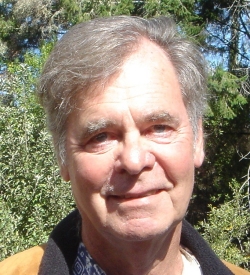Poetry
Forgotton
By James Edward “Ouzel” Arnold
 A friend found me pondering
A friend found me pondering
over a decision, maybe important.
Maybe not, he said,
for who in 100 years will remember?
It led me to ponder who will remember?
Maybe a few of my progeny,
distant offspring who will appear in the future
with new family faces I would not recognize
and foreign sounding names I would never know.
It’s true, said my friend,
when he found me pondering again.
Memories of us will all be forgotten.
I wondered out loud, All memories?
Yes, all memories of us will be forgotten.
They will be lost by our children
who like us will remember but 1/10th of their own lives
1/100th of their father’s life,
maybe 1/1000th of their grandfather’s lives
and then nothing beyond that.
What ever we do will not be remembered.
Not our labors, our loves, our goals met or not
neither our successes nor our failures will anyone remember.
And no one will remember how or when we died
because they won’t even remember that we lived.
Our gravestones will become overgrown and tipped over
our graves neglected, abandoned, maybe washed away in a flood,
or more likely purposely uprooted, perhaps for a freeway,
or maybe a new shopping mall
for our children’s, children’s children.
The last shred of paper with our names
will be boxed and stored out of sight
and later discarded, recycled, burned
or used as filler in a land fill.
Even our names stored in computers
will eventually be deleted,
maybe accidentally, maybe intentionally,
perhaps even by a computer virus created
by that sweet, sweet nephew
of your great great granddaughter.
The grief of our fate is more
than just that we die.
It is also that we will be forgotten,
with no memory of us at all,
and no trace of our lives left anywhere on earth.
Ouzel – Summer, 2006
A Place that Keeps its Wildness
By James Edward “Ouzel” Arnold for Richard and Fiona on their wedding day
There is something about a place that keeps its wildness.
A place where wildness is in the air
with pelicans and petrels flying the coast
and high above – the knowing eyes of condors.
A place where the wind blows free and uninhibited,
sometimes blowing gentle, sometimes furious.
A place where a mighty ocean storm might choose
as a place to come ashore.
A place where mountain lions still live.
Mountain lions who know the ground by heart
and who may come in the night
seeking a neighbor’s dog.
A place where the ocean is as wild as ever,
where strong tides feel welcomed
and the voice of waves are free to thunder
and just as free to whisper in the night.
A place where wild otters and seals have room
to live and show us how to swim
with whales and salmon and sharks.
And where a wild, un-tamed Sun glitters on the water.
What is it about a place that keeps its wildness?
There must be a word to describe such a place.
Maybe the word ‘sacred’ – yes, sacred is the word.
A place that keeps its wildness is a sacred place.
A place made sacred by its wildness and yet
a place so modest that it may be known simply as
the first turn with three mailboxes
just past another place on the coastal highway.
A sacred place which holds its wildness close
is also a sanctuary where the heart feels safe,
safe enough to open,
and seek the open heart of another.
Hearts so open that they live in harmony,
day by night by day with each other,
and together they circle in harmony
with the wildness of the place.